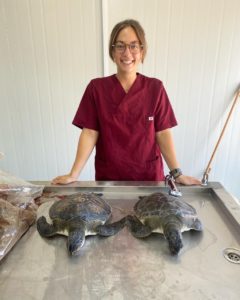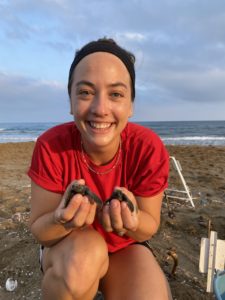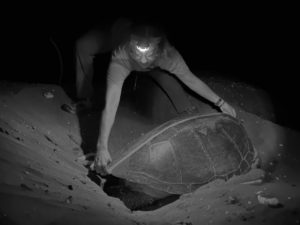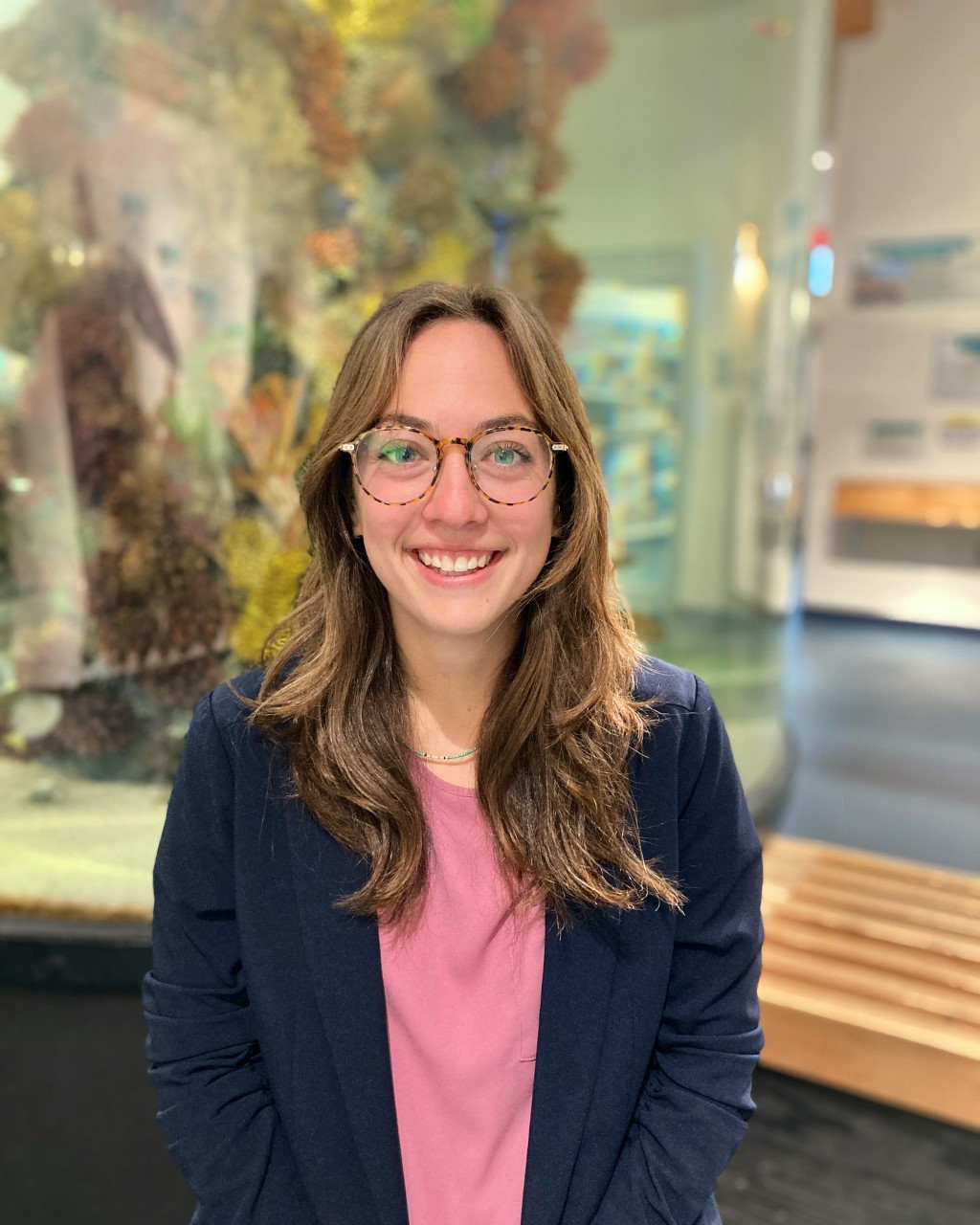We are looking back on some of our MSc graduates who have excelled in marine science around the world since studying with us. Today we meet Tess DeSerisy, MSc Marine Vertebrate Ecology and Conservation graduate (2021) and now a Conservation Field Supervisor at Sea Turtle Inc.

What did you enjoy most about studying at the University of Exeter?
The thing I value most about studying at Exeter was the connectivity it gave me to scientists around the world. Speaking with and hearing perspectives from researchers in loads of different cultures allowed me to open my mind to new and innovative ways of thinking.
What were the best aspects of studying your course?
The best aspect of studying my course was absolutely the research project! I had an incredible opportunity to travel to Cyprus to work with the Society for the Protection of Turtles (SPOT). I was given full responsibility of my own research, which made me feel confident in my abilities to both hypothesize and produce publication-level work.


What skills and experiences did you gain that will/have been useful for job/internship applications?
Almost all the skills that I learned during my masters were transferable to my new position. Most notably, though, I use my time management and research development skills. As a supervisor, I had to think on my feet often to make sure interns’ schedules were seamless yet productive. While balancing these schedules, I had to also develop new more efficient methods of conducting my own research.
Why did you choose to study at the University of Exeter?
The internationally acclaimed staff led me to apply and further choose to study at the University of Exeter.
Do you think there are any factors that make the University of Exeter a unique place to study?
As an international student, there are so many factors that make Exeter unique. The campus location and surrounding areas are incredible. The methods of teaching, especially during the pandemic, have been instrumental in my degree program. The accessibility of the faculty is incredible and rare for a university with both undergraduate and postgraduate programs. These are just a few of many factors.
What skills and experience have been most useful for your career? And how do you think your programme prepared you for your career/current role?
One of the hardest things about the degree was conducting my own research with a hands-off support system. My supervisor trusted me to develop and carry out my own project, only offering support when I asked for or needed it. As someone who thought they might be a “forever intern”, trust and responsibility of this stature were unfamiliar to me. This opportunity allowed me to believe in myself and grow into a successful research scientist. I think there is no better way to be prepared for a career in research than to be given the opportunity to conduct meaningful research while knowing your supervisor would not let you fail.


Why did you choose this career?
I always knew I wanted to do field work, but it wasn’t until going through this masters program that made me sure I also wanted to conduct meaningful research from the field. This position, and this career path in general, has enabled me to collect important data, use this data for novel research and to share my passion for science with young career scientists.
What advice would you give to a current student who wishes to pursue your career?
Never let anyone tell you your dreams are too big. If you put everything you have into it, you can’t go wrong.
What are your plans for the future?
I plan to hold the position I am currently in for several years to grow, publish, and learn. Following this position, I plan to either grow within the company or begin a PhD program to further specialise as a research scientist.
What advice would you give to anyone thinking of applying to the University of Exeter?
I heard in a movie once, “It only takes five seconds of courage to change your life.” Why not try?

